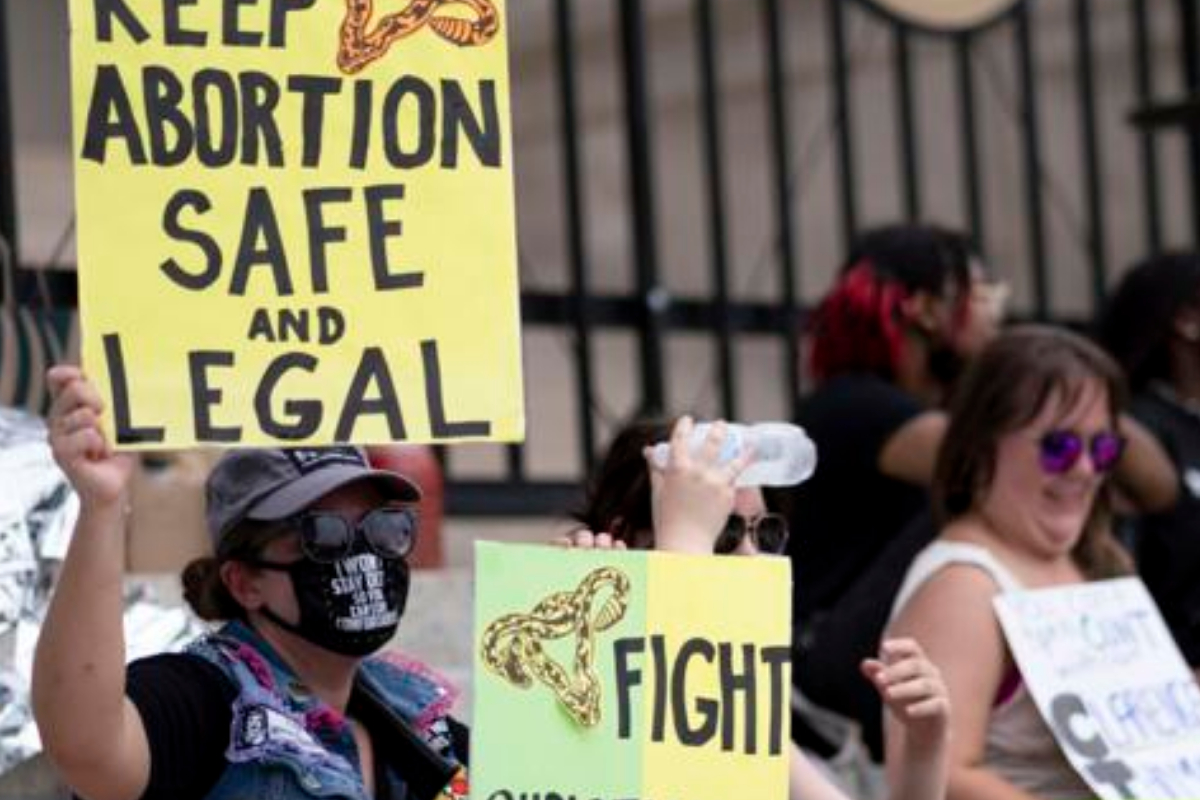- A Georgia judge rules out the six-week abortion ban.
- Planned Parenthood and other abortion rights groups challenged the restriction when it went into effect this summer.
- The ruling was based on the 1973 Roe v. Wade decision, which established a federal right to abortion.
A Georgia state judge ruled out the six-week abortion ban, granting victory to Planned Parenthood and other abortion rights groups that challenged the restriction when it went into effect this summer.
Judge Robert McBurney of the Superior Court of Fulton County ruled that the law was invalid when it was approved in 2019 based on the 1973 Roe v. Wade decision, which established a federal right to abortion.
McBurney stated that now that the Supreme Court has reversed Roe, the state must enact the law anew for the prohibition to be effective. McBurney noted in his conclusion that the 2019 statute was “plainly unconstitutional when drafted, voted upon, and enacted.”
The rule barred abortion when fetal heart activity is detected, usually around six weeks and often before a woman knows she’s pregnant. It allowed exceptions for abortions performed to save the mother’s life and for alleged rapes.
[embedpost slug = “/gwinnett-county-georgia-has-few-ballots-to-count/”]
It had been banned by Roe but went into effect in July after the U.S. Supreme Court ruled in June that states could restrict abortion to any extent.
The Guttmacher Institute, a reproductive rights advocacy group, says Georgia now allows abortion up to 22 weeks.
After a long road, we are finally able to celebrate the end of an extreme abortion ban in our state,” said Monica Simpson, executive director of SisterSong Women of Color Reproductive Justice Collective and the case’s lead plaintiff.
A spokesman for Republican Georgia Governor Brian Kemp stated on Tuesday afternoon that the state had “already filed a notice of appeal” and will “continue to battle for the lives of Georgia’s unborn children.”
McBurney didn’t rule on whether the measure violated the Georgia Constitution, so lawmakers could enact it again.
Since the end of Roe v. Wade, over a dozen states have implemented near-total abortion bans, with several in the southeast region of the United States, such as Georgia.
Abortion rights advocates argued in October that the law violated Georgians’ freedom and privacy rights and endangered women’s health.
[embedpost slug = “/key-things-to-know-about-georgia-senate-runoff-and-how-it-works/”]





















